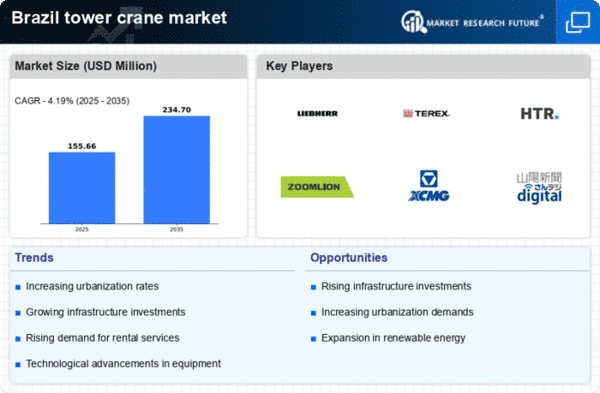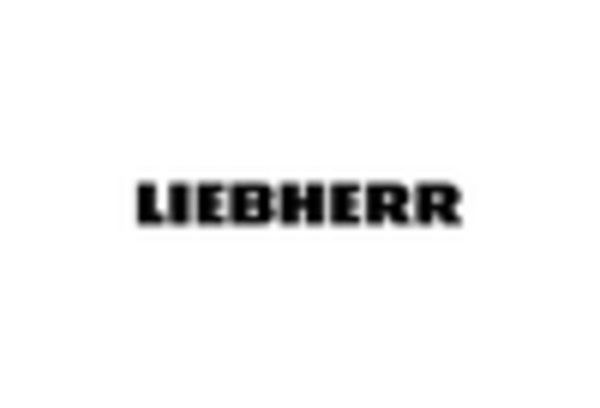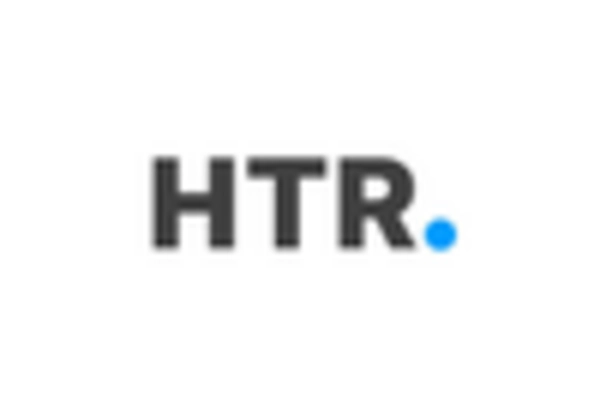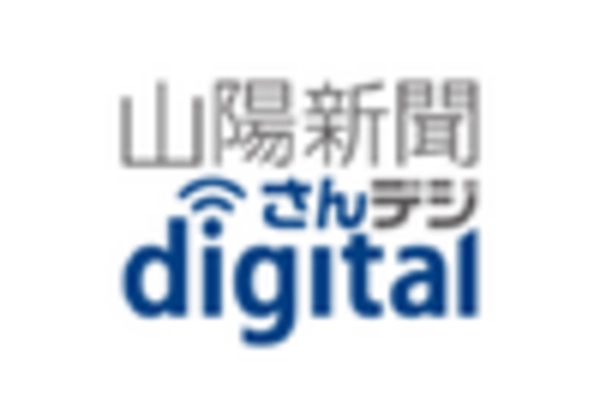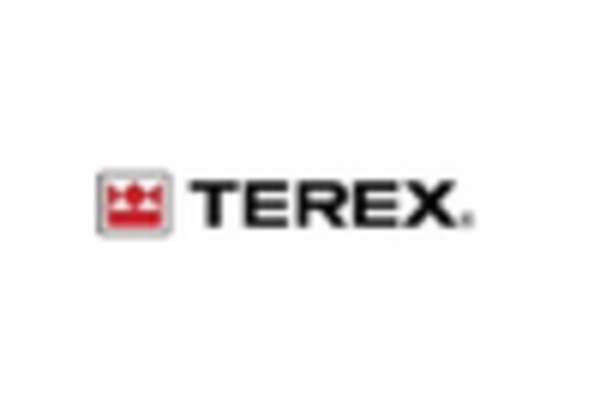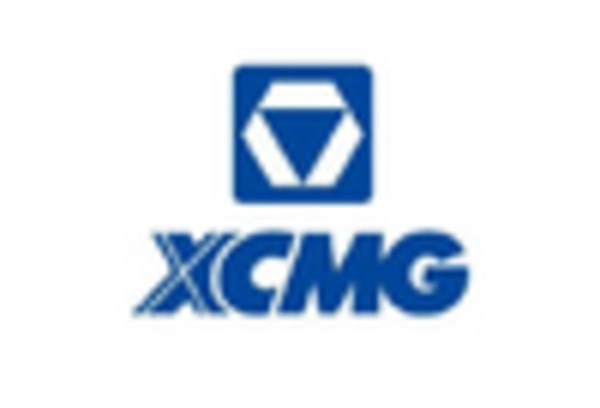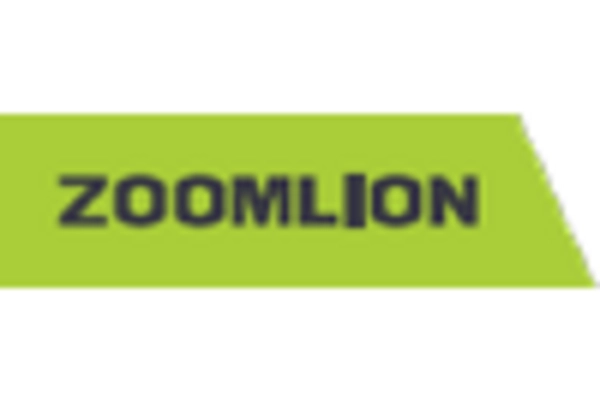Urban Population Growth
Urban population growth in Brazil is a significant driver for the tower crane market, as cities expand and require new infrastructure. The urban population is projected to increase by approximately 2.5% annually, leading to heightened demand for residential and commercial buildings. This demographic shift necessitates the construction of high-rise structures, where tower cranes play a vital role in lifting heavy materials efficiently. As urbanization accelerates, construction companies are increasingly investing in tower cranes to meet the demands of urban development. The need for efficient lifting solutions in densely populated areas further underscores the importance of the tower crane market in Brazil, suggesting a favorable outlook for industry stakeholders.
Rising Construction Activities
The tower crane market in Brazil is experiencing a notable surge due to increasing construction activities across various sectors. The Brazilian government has initiated several infrastructure projects, including transportation networks and urban development, which require efficient lifting solutions. In 2025, the construction sector is projected to grow by approximately 4.5%, driving demand for tower cranes. This growth is further supported by private investments in residential and commercial buildings, which are expected to contribute significantly to the market. As construction companies seek to enhance productivity and safety, the adoption of advanced tower cranes becomes essential. Consequently, the rising construction activities are a pivotal driver for the tower crane market, indicating a robust outlook for manufacturers and suppliers in Brazil.
Rising Demand for Rental Services
Rising demand for rental services in the construction sector is a key driver for the tower crane market in Brazil. Many construction companies are opting for rental solutions to reduce capital expenditure and enhance flexibility in project management. In 2025, it is estimated that the rental market for construction equipment, including tower cranes, will grow by approximately 15%. This trend is particularly pronounced among small to medium-sized enterprises that may lack the financial resources to purchase equipment outright. As a result, rental companies are expanding their fleets to include a variety of tower cranes, catering to diverse project requirements. This shift towards rental services is likely to bolster the tower crane market, providing opportunities for both manufacturers and rental service providers.
Government Infrastructure Investments
Government investments in infrastructure are a critical driver for the tower crane market in Brazil. The Brazilian government has allocated substantial budgets for infrastructure development, focusing on transportation, energy, and urban facilities. In 2025, public spending on infrastructure is anticipated to reach approximately $30 billion, fostering a conducive environment for construction activities. This influx of capital is likely to stimulate demand for tower cranes, as they are essential for large-scale projects. Moreover, the government's commitment to improving public services and facilities further emphasizes the need for efficient construction equipment. As a result, the tower crane market is poised to benefit significantly from these government initiatives, enhancing the overall growth trajectory.
Technological Innovations in Equipment
Technological innovations are reshaping the tower crane market in Brazil, as manufacturers introduce advanced features to enhance performance and safety. The integration of smart technologies, such as IoT and automation, is becoming increasingly prevalent in tower cranes, allowing for real-time monitoring and improved operational efficiency. In 2025, it is estimated that around 25% of new tower cranes will incorporate these advanced technologies, appealing to construction companies seeking to optimize their operations. Additionally, innovations in materials and design are contributing to the development of lighter and more durable cranes, which can operate in diverse environments. This trend towards technological advancements is likely to drive the demand for modern tower cranes, positioning the market for sustained growth.


